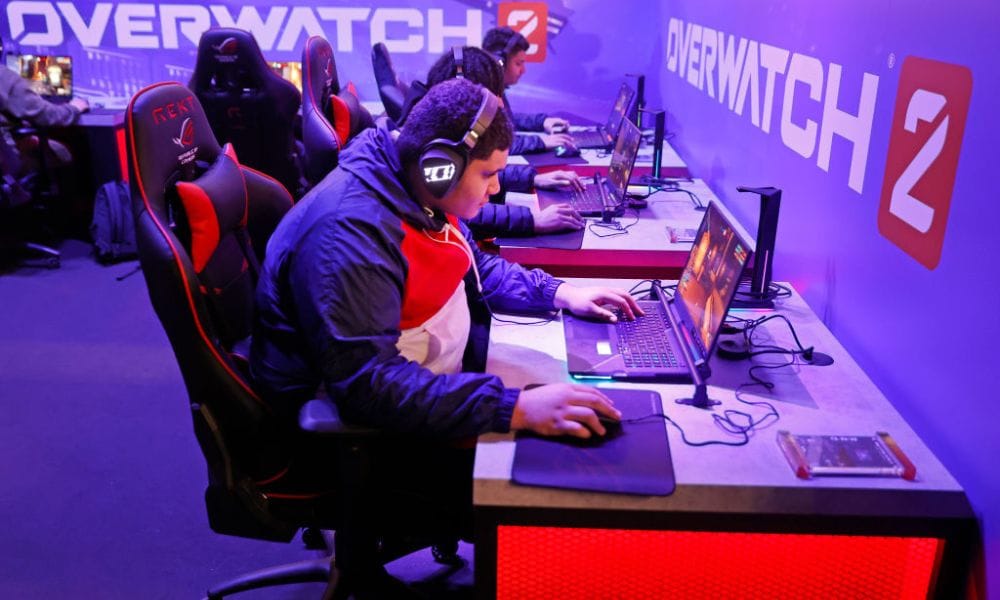Overwatch Esports is back baby!

I remember the days when the Overwatch League (OWL) was the pinnacle of esports for fans of Blizzard's hero shooter. The league, with its city-based teams and NFL-esque franchise model, had a promising start but ultimately faced numerous challenges, including the costly buy-ins and the global pandemic that severely limited in-person events. Despite the efforts, the OWL couldn't sustain its momentum and was discontinued. However, Blizzard's recent announcement of the Overwatch Champions Series (OWCS) has reignited the excitement within the community, myself included.
The OWCS, revealed in a blog post on January 23, represents a fresh start for Overwatch 2 esports. This new international competitive circuit, developed in partnership with the ESL FACEIT Group (EFG), is a beacon of hope for players across three key regions: North America, Europe, the Middle East, and North Africa (EMEA), and Asia. What's particularly thrilling about this development is the open-circuit model, a stark departure from the OWL's city-based franchises. This model is more akin to the ecosystems seen in Dota 2 and CS:GO, focusing on player-created teams and open qualifiers, which I believe could democratize the competition and breathe new life into the Overwatch 2 esports scene.
The decision to collaborate with FACEIT is a strategic move by Blizzard. FACEIT's track record with games like Rainbow Six Siege and League of Legends speaks volumes about its capability to foster a vibrant esports environment. This platform could become the central hub for Overwatch 2's competitive community, providing a seamless way for players to connect, compete, and track their progress.
Jared Neuss, the executive producer, emphasized the importance of a thriving esports scene for a game as inherently competitive as Overwatch 2. This sentiment resonates with many in the community who have longed for a more inclusive and accessible competitive framework. The OWCS seems poised to offer just that, with its emphasis on open qualifiers and player empowerment.
What sets the OWCS apart is its international appeal and the promise of major in-person events. The collaboration with DreamHack to host two significant OWCS events is a testament to Blizzard's commitment to not just reviving but elevating Overwatch esports. The prospect of a major finale event in Europe, a first for a significant Overwatch esports tournament, is particularly exciting.
The introduction of a free Battle Royale mode, inspired by the likes of Call of Duty: Warzone, as reported by sources like Charlie Intel and Dexerto, suggests a significant shift in the game's direction
This move, likely aimed at capturing a broader audience, could redefine the competitive landscape of Overwatch 2.
However, it's the return to a 64-player match format and the four-class system, coupled with an advanced destruction system set in a modern-day context, that truly signals a return to the franchise's roots. This blend of classic and contemporary elements could be the formula needed to reinvigorate the series and attract both veterans and newcomers to the fold
As a fan, I'm cautiously optimistic about the OWCS and the direction Overwatch 2 esports is taking. The failures and lessons of the OWL seem to have informed Blizzard's approach to the OWCS, aiming for a more community-focused, accessible, and exciting competitive ecosystem. The success of this endeavor will ultimately depend on the execution and the community's reception, but the foundations are promising.
The resurrection of Overwatch esports through the OWCS represents more than just a series of tournaments; it's a recommitment to the game's competitive spirit and a celebration of its community. As we inch closer to the kick-off in March 2024, the excitement is palpable, and I, for one, am eager to see how this new chapter unfolds. The promise of high-stakes competition, coupled with the community's enduring passion, suggests that Overwatch 2 esports is, indeed, "so back, baby."





